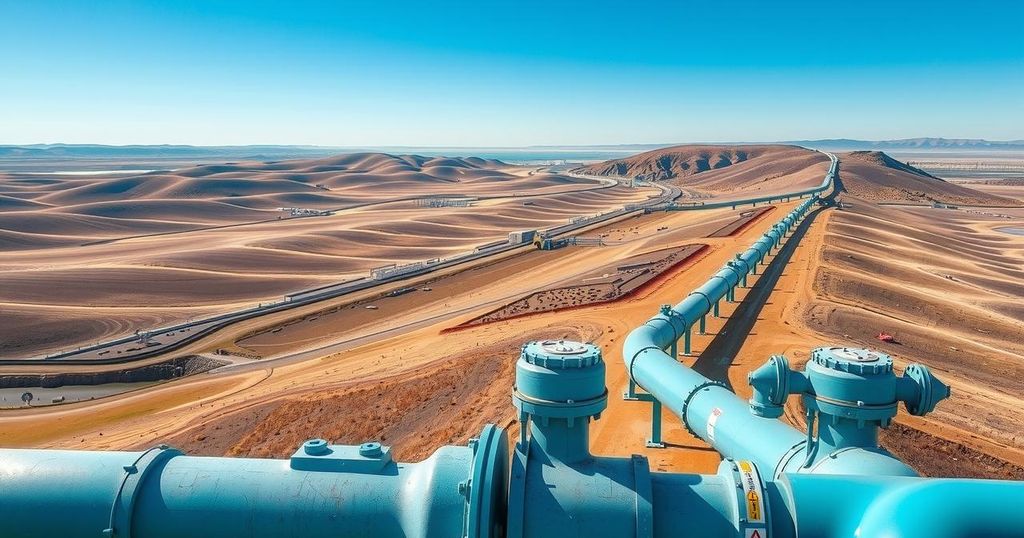Argentina has begun exporting natural gas to Brazil for the first time using YPFB infrastructure. This initiative is set to bolster energy investments in Argentina while stabilizing fuel supply in Bolivia. YPFB President Armin Dorgathen announced successful fuel provision in key cities, countering rumors regarding pricing and operations.
Argentina has commenced the first export of natural gas to Brazil via the infrastructure of Yacimientos Petrolíferos Fiscales Bolivianos (YPFB). This agreement, signed in late 2024, involves gas sales from the Vaca Muerta field in Neuquén, Argentina, transported through the TGN and TGS pipelines to Salta and then through Bolivia’s YPFB network, including the Madrejones pipeline to Brazil.
The Brazil-Bolivia Gas Pipeline (Gasbol) currently has a capacity of 30 million cubic meters per day, although it operates at only 10 million at present. Plans are underway to enhance this capacity over the next five years to accommodate Brazil’s industrial needs. This shift has positioned Bolivia as a vital energy link in the Southern Cone by transitioning from exporting to leasing its pipelines.
Argentina’s venture into gas exports marks a significant revival of its energy sector, which sets the stage for potential future hydrocarbon investments. Initial export volumes are anticipated to reach 2 million cubic meters daily.
In a related announcement, YPFB President Armin Dorgathen noted that the fuel supply in major Bolivian cities, such as Santa Cruz, La Paz, and Cochabamba, has become stable, resulting in decreased wait times at gas stations. YPFB is currently distributing over 7.7 million liters of diesel and 8 million liters of gasoline daily, with additional shipments arriving at the Chilean port of Arica.
Dorgathen also addressed speculation regarding fuel pricing and imports, asserting that prices align with global standards. He affirmed Bolivia’s commitment to its fuel subsidy and indicated that a forthcoming forum would address regional fuel pricing issues. He emphasized that gas not sent to Argentina would now be directed to Brazil due to higher demand and competitive pricing.
Furthermore, Dorgathen remarked on the improved fuel situation in Bolivia, stating, “In Santa Cruz and La Paz, the queues to fill up gasoline have practically disappeared.” He relayed that the number of vehicles awaiting fuel has drastically reduced. He dismissed rumors about his potential resignation, expressing confidence in ongoing operations in Bolivia and plans to provide further transparency on fuel imports and pricing.
In summary, Argentina’s initiation of natural gas exports to Brazil through Bolivia establishes a new energy pipeline while bolstering Bolivia’s role in the energy sector. The successful stabilization of fuel supply in Bolivian cities reflects effective management by YPFB as it seeks to accommodate rising regional demands. Dorgathen’s assertions regarding pricing and transparency offer a pathway for improved relations and understanding of regional energy dynamics.
Original Source: en.mercopress.com




